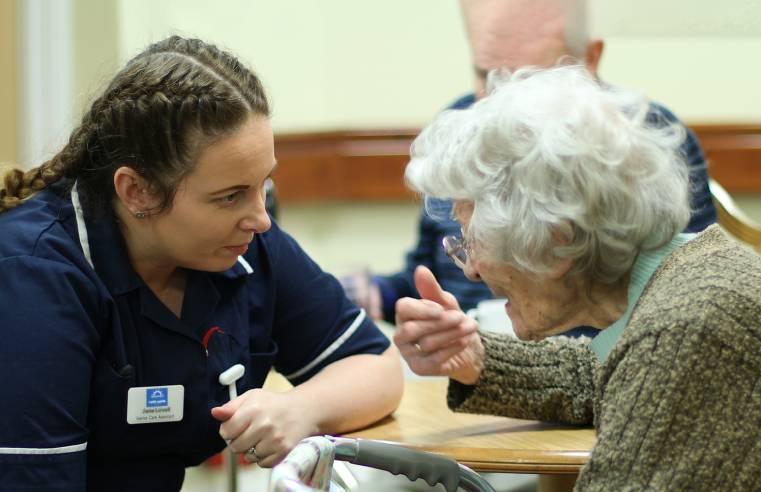To maintain the highest standards of health and safety, it’s vital that care workers are able to cope with any challenge that arises. Here, eLearning provider iHASCO discusses the top five considerations for managers and staff.
Care homes are facing more challenges than ever before. Whether it’s having to deal with compulsory vaccination requirements, budget constraints, staff shortages or workforce burnout, it’s fair to say that for a sector that works around the clock to provide quality care to the elderly and vulnerable people in our society, the pressures are real. On top of that, the health and safety of employees and residents must also remain a top priority.
We look at five key areas which every care home manager and their employees need to be on top of. Not only will this support them in their role but minimise the health and safety risks to themselves and others when working in care.
Moving and Handling
More than 40% of all work-related sickness absences in the care sector are the result of injuries from manual tasks, such as moving patients. It’s vital that any staff required to move or handle people and things are properly trained, which includes understanding how to use specialist equipment, such as hoists, as well as safely assisting patients with everyday tasks such as dressing and moving around the premises.
Fire Awareness
Fire risk assessments and evacuation strategies are vital to the safe running of care homes. Staff have the added responsibility of ensuring any vulnerable or less mobile individuals are able to evacuate the premises safely. All staff need appropriate training to understand how to eliminate or control fire hazards and reduce the risks they pose. Fire risk assessments should be regularly updated, for example when shift patterns change, or there’s been a change in occupancy.
Handling Hazardous Substances
Working in a care home will mean that staff often come across hazardous substances, which could be harmful to staff, residents or the environment. This includes cleaning products, clinical waste, and even contaminated fabrics. Procedures need to be in place for safely handling and disposing of hazardous substances to avoid injury and illness, such as providing space for appropriate storage and providing personal protective equipment.
First Aid
Employers have a legal duty to be able to administer first aid should anyone be taken ill or become injured on their premises. A risk assessment, providing adequate first aid equipment, and ensuring the right number of first aid trained staff for every shift needs to be considered. Anyone who has not received practical training should understand that they must seek help from a qualified first aider or call an ambulance. Face-to-face training for First Aid qualifications has resumed after the COVID restrictions, however an online course can be helpful to those requiring a refresher of key first aid procedures.
Mental Health and Wellbeing
Working in a care environment can be extremely demanding. Employers need to look out for signs of stress not only in their staff but themselves and their patients. Everyone has different levels of tolerance to stress, but there are often signs that may indicate when someone is not coping well, such as a change in behaviour. Let staff know that they can be open about their mental health and look at ways to further support their wellbeing.
Thankfully, enrolling staff on a number of eLearning courses will help every care home get on top of their compliance training. The convenience of online learning allows all workers to improve their understanding of the necessary safe working practices required. Also ensuring your care workers are familiar with any set policies and procedures before they undertake their duties is a must. Encourage them to ask questions if they are unsure about their health and safety obligations. When it comes to health and safety, working together will ensure the best outcome for everyone.

























